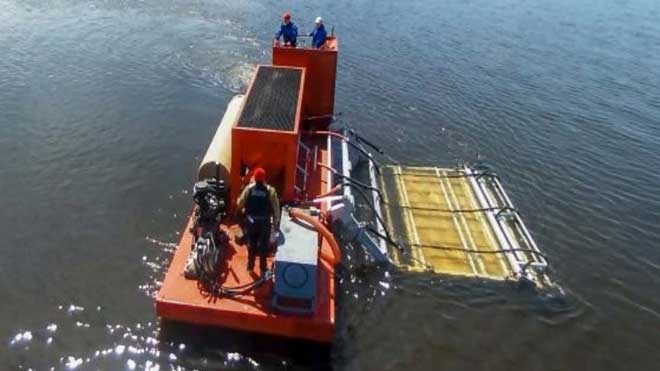A pilot project in Sudbury is aiming to give Eurasian milfoil, an invasive plant species threatening several area lakes, the sack.
Members of the Greater Sudbury Watershed Alliance received backing from city council this week for the project, which has been successful in other areas in reducing the plant by as much as 93 per cent.
Previous efforts to battle milfoil using weevils had limited success. Other communities have used chemicals and other methods, with mixed results. But a method pioneered in Europe was successful in Gatineau, Que., three years ago.
It makes use of burlap tarps, which are carefully stitched together into large squares. The square are placed by divers over an area of the lake plagued by milfoil, and held in place by sandbags also designed to degrade.
The burlap has a particular effect on the milfoil, but not on plant species native to the lakes. After a few years, the study found that the burlap disintegrates, but the milfoil in the area was reduced by 81 per cent to 95 per cent.
Members of the watershed alliance passed around plastic bags of the milfoil to councillors, to give them an idea of what they were talking about.
“To date, 18 Sudbury lakes have been invaded by milfoil,” said alliance member Nicole Wittke. “Some of our lakes will become unusable in a matter of years. Not decades, but years.”
The plant spreads easily, especially when shredded by boat motors, and easily pushes out native species. Lakefront homes can lose 10-19 per cent of their value, she said.
Residents are trying chlorine pucks, rubber mats, raking, but those approaches tend to make things worse and damage native species.
“Milfoil cannot be eradicated, but it can be controlled,” said another member, Lori Adams.
That's why the alliance was looking for support from council for their plans to start a pilot project similar to that of Gatineau.
“We are convinced that a pilot project can take place here, too,” Wittke said. “This is an opportunity to help restore the health of our lakes.”
Councillors easily passed a motion in support of the project, and asked what sorts of things residents could do to help.
“Washing your boat before you enter another lake is one big thing,” Wittke said. “And avoid boating through those milfoil beds,” since propellers shredding the milfoil spreads it across lakes.
And as a last piece of advice, councillors were told not to “discard your bags of milfoil in the lake.”
